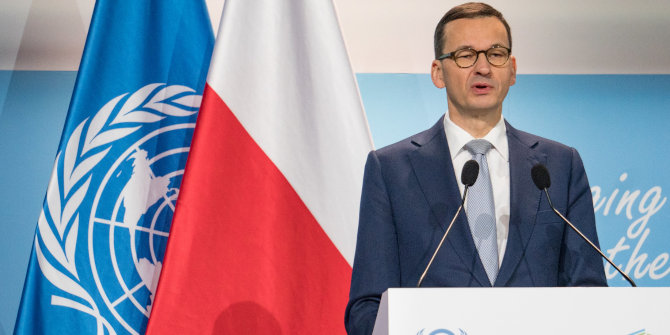Coalition governments generally involve policy compromises from the parties involved, but how do party supporters react to these agreements? Drawing on a new study covering the Spanish general election in November 2019, Carolina Plescia, Alejandro Ecker and Thomas M. Meyer find that the more attached voters are to parties, the harder it is for them to accept compromises. There is also evidence that voters find it more difficult to give in on important issues.
Increased polarisation in society means there is also increasingly difficult government formation in those countries where no single party commands a majority of seats after an election. For example, Spain held two elections in 2019 before parties could agree on a coalition government. Election-fatigued Israeli voters have faced four elections in the last two years, and as of today, they still have no national government. Although party elites may have several reasons for walking away from the negotiation table, how do voters themselves evaluate government compromises?
In a recent paper, we study voters’ willingness to accept policy compromises during government formation processes. Specifically, we argue and find that voters’ acceptance of policy compromises depends on both the strength of their party attachment and the importance they assign to the issue at stake during coalition negotiations. We also find that not giving in on important issues is key, especially for supporters of challenger parties, who tend to hold strong policy preferences on a select number of issues.
Our empirical tests are based on original survey data collected immediately after the Spanish general election on 10 November 2019. Spain is a particularly suitable case for testing our hypotheses as it is one of the few consensual systems in which coalitions are a new phenomenon at the national level. This limits the risk that preferences for coalitions and coalition compromises are endogenous to coalition governments formed in the past, as shown in previous research. We fielded our survey immediately after the election, when government formation was salient in voters’ minds, but prior to the signing of the coalition agreement that in itself was likely to influence voter preferences.
To examine whether voters prefer their party to compromise on specific policy issues, we confronted voters with a coalition alternative (including their most preferred party) and asked them to identify the most contentious issue in potential coalition talks. Our focus in this study is on whether voters prefer their party to make significant policy concessions to its coalition partners for the sake of forming a coalition government, or whether they would prefer the party to stick to its policy positions no matter what.
We find that party supporters are willing to accept concessions made in coalition talks, but less so if they have a strong party identification and care about the issue at stake. Moreover, supporters of challenger parties differ from those supporting a mainstream party: on issues that are not important to them personally, supporters of challenger parties are more likely to accept policy concessions to coalition partners. However, on the most important issues, challenger party supporters are less forgiving than those supporting a mainstream party.
Voters’ willingness to accept concessions in Spain is somewhat surprising given the lack of experience of coalition governments at the national level. It is possible that electoral fatigue after two snap elections in 2019 increased voters’ willingness to accept policy concessions to finally have a government and ‘get things done’. This might be the case in other countries as well where coalition talks have failed many times (e.g. in Israel between 2019 and 2021) or after unusually long coalition talks like in Germany after the 2017 election or in Italy in 2018.
These findings shed light on the linkage between citizens and political elites after election campaigns, highlighting that party supporters accept the necessity of making policy concessions to political competitors. We also identify conditions under which citizens grant their party more leeway in the negotiations and where they expect their party to stand firm on its policy proposals.
These expectations at the outset of coalition negotiations additionally facilitate our understanding of which parties are more likely to pay an electoral price for their participation in government. Given that compromising on important issues may result in electoral punishment in the future, voters’ unwillingness to compromise may bind party leadership. Nevertheless, once included in a formation attempt, the constraints posed by party supporters may serve as credible signals to potential coalition partners that a party cannot concede any further.
Furthermore, the results show that policy compromises in coalition negotiations are not necessarily a zero-sum game. If the supporters of the negotiating parties prioritise different issues, the parties can find mutually beneficent deals by conceding on those issues that are relatively unimportant to their supporters. Moreover, challenger parties should be particularly unwilling to accept compromises on their supporters’ most important issues, but in turn more likely than mainstream parties to accept policy concessions on less important concerns.
For more information, see the authors’ accompanying paper at the European Journal of Political Research
Note: This article gives the views of the authors, not the position of EUROPP – European Politics and Policy or the London School of Economics. Featured image credit: La Moncloa – Gobierno de España (CC BY-NC-ND 2.0)




